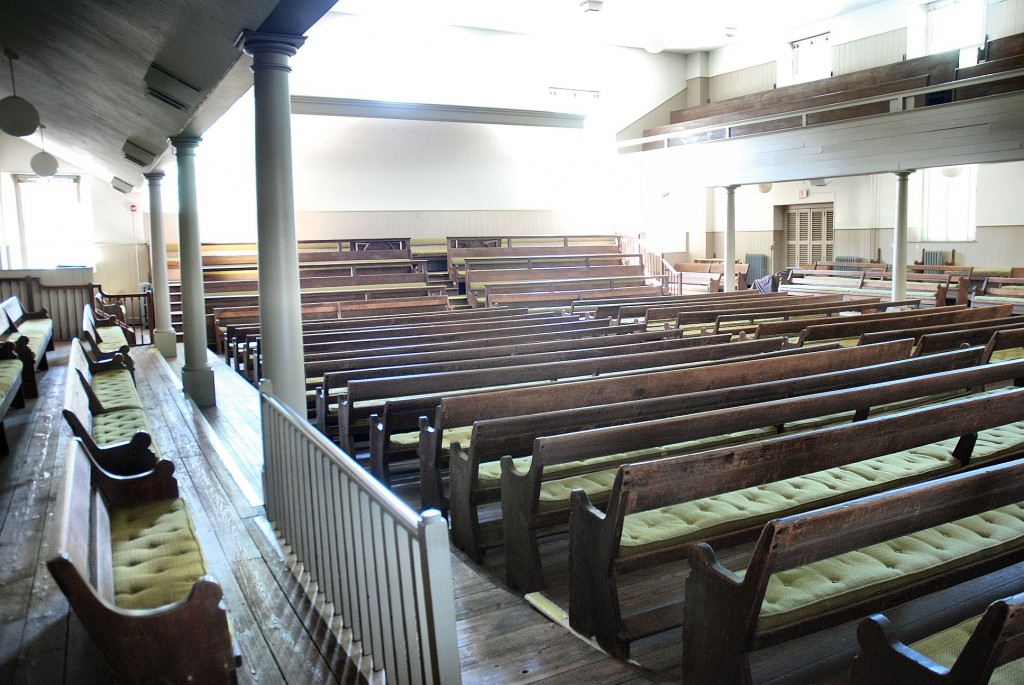‘Silence is a lovely idea’ – so why have churches become so noisy?
By Mark Vernon, Friday 22 June 2012 06.03 EDT
Silence is like forgiveness. Many would say it’s a lovely idea, until they have to do it (to borrow a line from CS Lewis). Or more provocatively, could there be a cultural conspiracy around silence, as if the powers-that-be would prefer that we did not do it? After all, the silent person is a dangerous person. They have thoughts of their own.
Diarmaid MacCulloch, professor of the history of the church at Oxford University, is developing something of reputation for making scholarly jibes at the tradition he has so extensively studied. He has remarked that the conversion of England in the sixth century was prompted by Pope Gregory falling for the fair-haired “angels” from these islands, when they appeared in the Roman slave market. Funny, MacCulloch noted, that the church is now so troubled by same-sex affections. Then, in his TV series, How God Made the English, he argued that the established church defends the place of all faiths in society, not because the Church of England has long championed tolerance, but because historically it has been so intolerant. It has learned the lesson the best way, that is, the hard way.
Now, in his Gifford Lectures, delivered last month and available online, he has turned his mind to silence. The lectures present a lively history of silence in the church, and left me with a clear sense that this is a history that affects us all today.
A suspicion of silence took root in the second and third centuries, when bishops penned diatribes against the so-called gnostikoi, Christians who claimed that God was most fully known as unknowable, and so therefore in silence. To be branded a gnostic was to be cast out of the fold. Then, in the fourth century, came the conversion of Constantine. The church aligned itself to secular power and now what you thought was of political importance too. Thereafter, western rites included creeds to be audibly confessed. They policed who was in and who out.
The legacy of this tradition is that, today, if you go to a mass or morning worship, there will be barely a moment’s silence. Quakers aside, it is as if there is a de facto ban on silence in public worship. When people gather together, they should rehearse approved truths. The inner life, left alone, foments heresy and subversion.
Related is the widespread assumption that to be a Christian is to give your assent to truth statements: you go to church not because you are searching but because you believe.
The legacy seems to have shaped powerful secular traditions too, such as empiricism or behaviourism. They work on the principle that if manifest evidence cannot be produced in support of human experience, the experience is either extraneous or deluded.
The loss of silence is becoming what might be called a mission issue. Take the growing popularity of western Buddhism. It is, I suspect, partly a reaction. Buddhism encourages the individual to train in silent practices that take the inner life seriously. This appeals to contemporary individualism and, further, such Buddhism naturally adopts the insights of psychology and so befriends modern science, unlike Christianity that appears to be locked in fights over publicly agreed truths.
MacCulloch highlights the fate of Evagrius Ponticus. (Who? you might ask. Quite.) The fourth century monk was one of the first Christians systematically to chart the inner life, describing the difficult thoughts that the individual would face as they journeyed inwards – unruly passions including lust, anger, sloth and pride. The hope was that the individual might come to understand their feelings and so be freer of them.
If that sounds rather like mindfulness meditation, which eases the individual away from the snares of discursive thought and the depression and anxiety that can result, it is because the insight is essentially the same. The tragedy for the church is that Evagrius was branded a gnostic. His exploration of human inwardness was transformed into the seven deadly sins. Subtle inner guidance was brought under strict ecclesiastical control.
So, once again, MacCulloch’s intervention is timely. Noisy Christianity is alive and kicking. For individuals who feel the allure of silence, it is off-putting and irrelevant. They might never know that there are profound, useful meditative traditions in Christianity too.
http://www.guardian.co.uk/commentisfree/belief/2012/jun/22/silence-lovely-idea-church-quakers or http://bit.ly/PGdaMA
Photograph (modified): http://www.discoverthyself.org/quaker-what/

